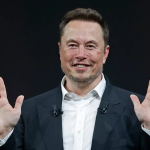By The Malketeer
The advertising industry is undergoing a transformative journey, challenging traditional norms and rewriting the narrative surrounding gender equality. Brands, once confined to stereotypical portrayals of men and women, are now using their influence to reshape societal perceptions and champion inclusivity. This shift represents a significant departure from the past, where gender stereotypes were deeply ingrained in marketing strategies.
Let’s contemplate on how brand power is playing a pivotal role in reshaping gender equality narratives.
Breaking Stereotypes
One of the most remarkable changes in advertising is the dismantling of gender stereotypes that have persistently plagued the industry. Brands are increasingly moving away from outdated portrayals of women as mere homemakers and men as breadwinners.
Instead, they are embracing diversity in all its forms, presenting a more accurate and inclusive representation of society. Advertisements now feature a spectrum of individuals, breaking free from rigid gender norms and challenging preconceived notions.
Empowering Women
Many brands have recognised the need to empower and celebrate women in their advertisements. The shift towards portraying women as strong, independent, and diverse individuals is gaining momentum.
Advertisers are acknowledging the multifaceted nature of women and their contributions to various aspects of life. This positive representation not only resonates with consumers but also fosters a culture of empowerment, inspiring women to defy societal expectations and pursue their dreams.
Dismantling Toxic Masculinity
In tandem with empowering women, brands are also challenging toxic masculinity. The stereotypical portrayal of men as overly aggressive, emotionally distant, and solely focused on physical strength is being replaced by more nuanced and authentic representations.
Advertisements are increasingly showcasing men in nurturing roles, breaking free from the confines of traditional expectations and promoting a healthier understanding of masculinity.
Inclusive Messaging
Brands are adopting a more inclusive approach by crafting messages that resonate with a diverse audience. This involves acknowledging and representing various gender identities, orientations, and expressions.
Advertisers are striving to create content that reflects the reality of today’s society, fostering a sense of belonging for individuals who may have felt marginalised or underrepresented in the past.
Promoting Equality in the Workplace
Beyond external messaging, brands are taking steps to address gender equality within their own organisations. By promoting diversity and inclusion in the workplace, companies are not only aligning with progressive values but also creating environments that foster creativity and innovation.
This commitment to equality is reflected in advertisements that showcase diverse teams and leadership, reinforcing the idea that inclusivity is not just a marketing strategy but a core value.
Consumer Empowerment
As consumers become more socially conscious, brands are realising the importance of aligning with values that resonate with their target audience. Advertisers are increasingly incorporating themes of gender equality, diversity, and inclusivity into their campaigns, recognising that consumers are more likely to support brands that reflect their own values.
This shift in consumer expectations is driving a positive feedback loop, encouraging brands to continue promoting progressive narratives
The power of brands in reshaping gender equality narratives is undeniable. Through their influence on popular culture and consumer perceptions, brands are challenging long-standing stereotypes and promoting a more inclusive and diverse representation of gender.
This paradigm shift not only reflects changing societal attitudes but also contributes to the ongoing journey towards a more equal and just world.
As brands continue to wield their power in shaping public discourse, the advertising industry has the potential to be a catalyst for positive social change, fostering a future where gender equality is not just an aspiration but a reality.
MARKETING Magazine is not responsible for the content of external sites.










